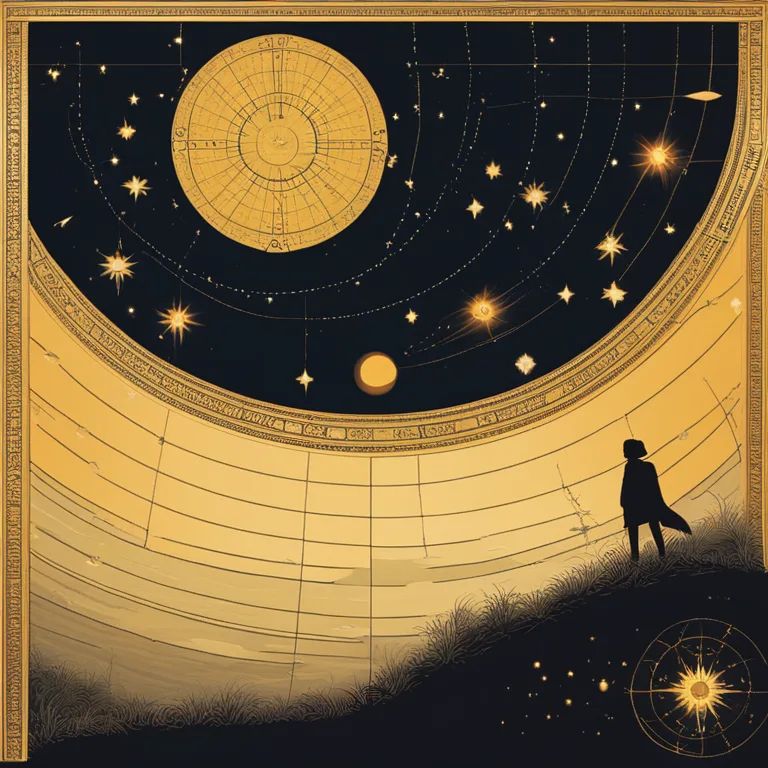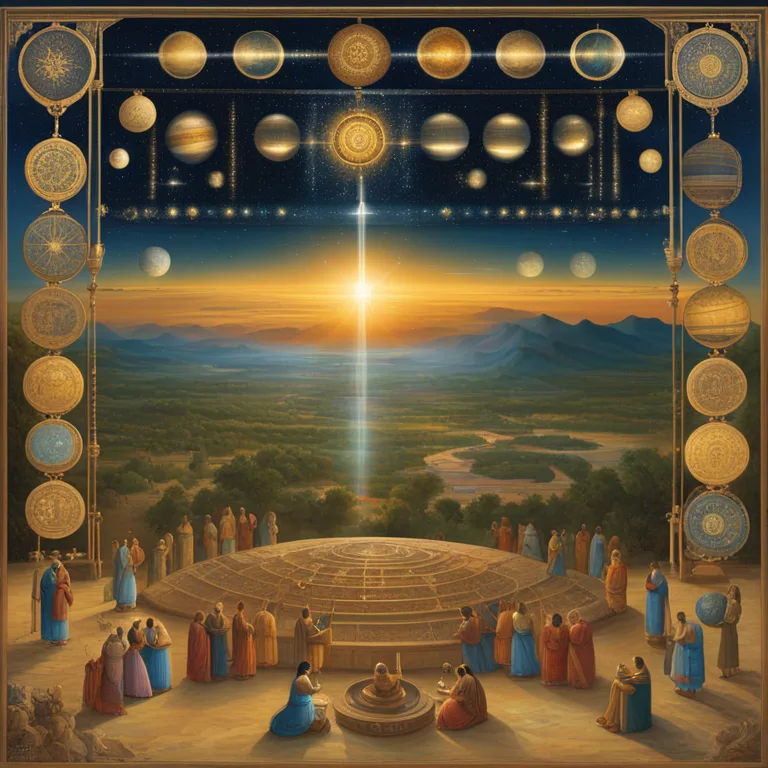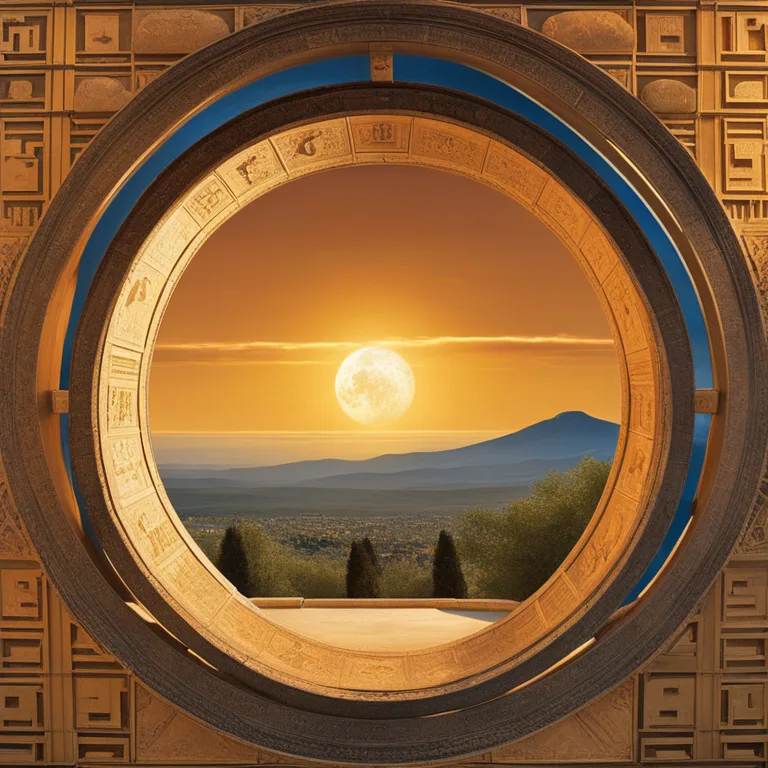
Astrology: The Celestial Path Back In Time
Trace the celestial path back in time to discover how astrology emerged and evolved throughout human history.
article by Priya Deshmukh
The Dawn of Astrology
Astrology, the study of the movements and relative positions of celestial bodies interpreted as having an influence on human affairs and the natural world, has a genesis as mysterious as the stars themselves. Its creation is deeply intertwined with humanity's earliest quest for understanding the universe and their place within it. Ancient civilizations looked up to a sky draped in constellations and planets, and began noting patterns and cycles within these heavenly bodies. They observed the sun’s power in dictating the seasons, the moon’s sway over the tides, and took the first steps to ascribe meaning to these celestial dances.

Constellations and Mythology
Astrology's foundations are laid upon the constellations, the imaginative shapes formed by star patterns in the night sky, which often carry mythological significance. Cultures across the world told stories of gods and monsters written among the stars, using these tales as a celestial script to mark the passage of time and to convey societal values. As these stories passed from generation to generation, the movements of Jupiter, Mars, Venus, and other planets were also being tracked with keen interest, tying earthly events to the heavens in an intricate cosmic web.

Babylonian Beginnings
The formalization of astrology is often credited to the Babylonians, who, around the 2nd millennium BCE, developed one of the first organized systems that connected celestial phenomena to terrestrial events. They created complex star catalogs and the zodiac, a celestial coordinate system that divides the sky into twelve segments. Each segment or 'sign' associated with a constellation, and thus, the twelve signs of the zodiac we recognize today were born, influencing personal qualities and fate—a concept continually evolving with the passage of time.

Hellenistic Influences
Astrology as we know it saw substantial development because of Hellenistic culture, particularly after the conquests of Alexander the Great, which melded Eastern and Western philosophies. It was during this period, from the 3rd century BCE onwards, that the planetary bodies were given characteristics and relationships with one another, shaping horoscopic astrology, which focuses on the construction of a person's astrological chart for specific moments in their life.

The Astrological Renaissance
The practice of astrology continued to flourish throughout the medieval Islamic world, with scholars translating and expanding upon ancient texts. This knowledge eventually made its way back to Europe, fueling a Renaissance that saw astrology as both an art form and a science. Astrological thought was respected, taught in universities, and practiced by respected figures. It was not just a mystical belief system but a structured study of planetary positions that could influence personal and political events, and even the health of individuals—a view that would persist until the advent of more empirical scientific methodologies.
Modern-Day Astrology
Astrology in the modern era has evolved into a more psychological and symbolic framework, yet it retains threads of its historical roots. Today's horoscopes, while often seen as a form of entertainment, draw from the tradition of using stars and planets to provide insights into personality traits and potential future paths. In the context of 2024 and beyond, astrologers might implicate the significance of Saturn entering Pisces, an event that happens approximately every 29.5 years, in forecasting a collective focus on compassion and creativity, or the implications of other celestial shifts and alignments in their readings.
Published: 12/29/2023
Modified: 12/29/2023
More predictions
Come back here soon to learn more about yourself and your future


The Roots of Astrology: Tracing Its Linguistic Heritage
Delve into the linguistic history of astrology and uncover the ancient origins of this mystical practice's name and significance.


Your Astrological House Stars Journey
Discover the significance of astrology houses in your birth chart and learn which astrological house you belong to for deeper self-awareness.


The Mechanics of Astrology: Cosmic Influence
Delve into the intriguing realm of astrological practices and discover how celestial bodies are believed to hold sway over human destiny.